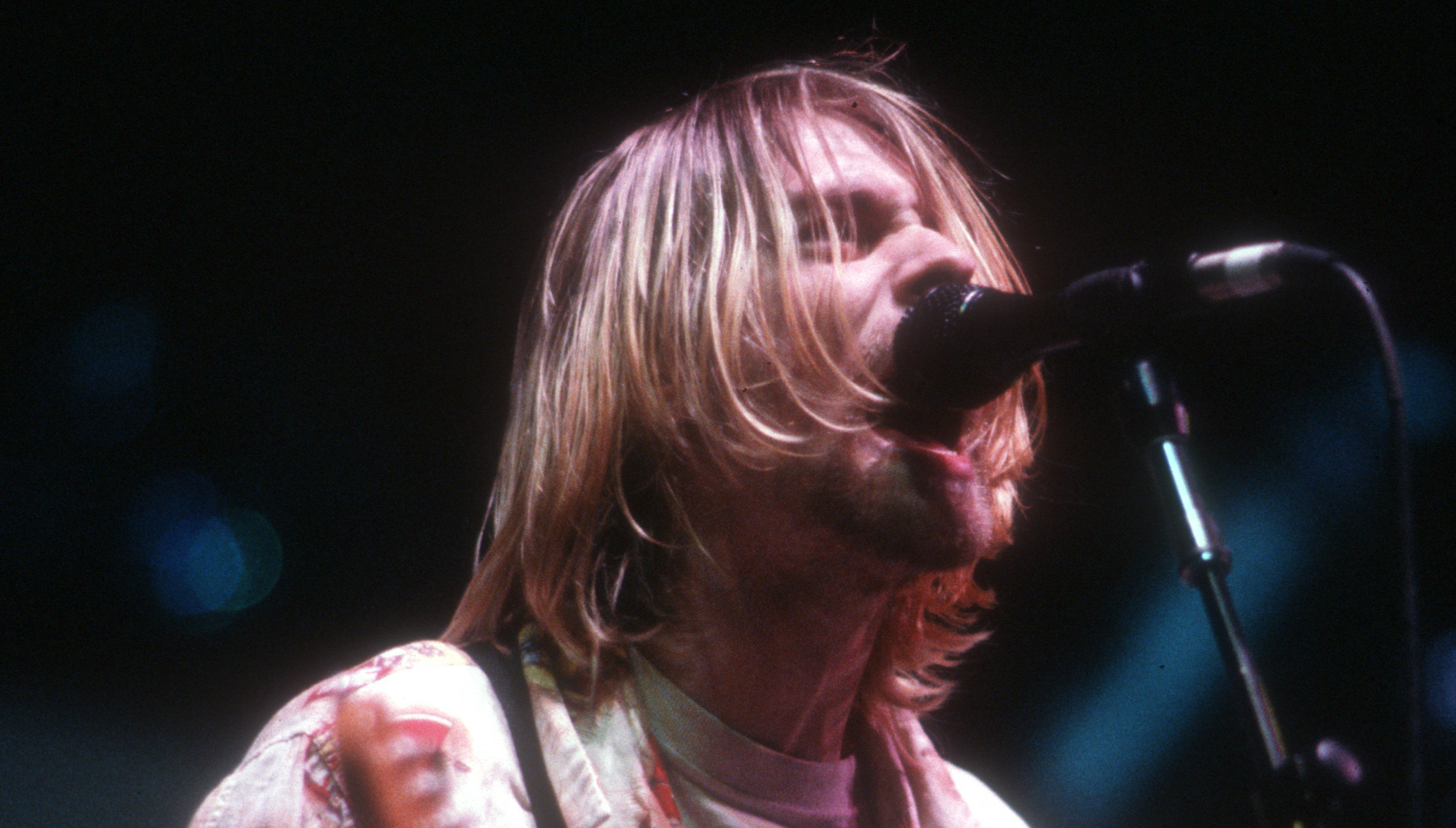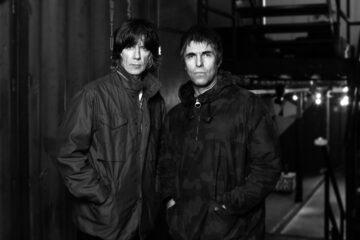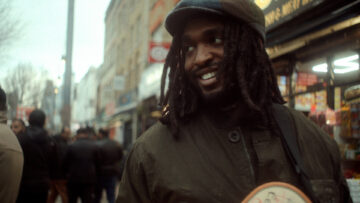
For outsiders, ‘Creep’ is often the one most associated with the ever-evolving, existential British band; for their fans, however, it’s something of an insult when people only refer to it amongst their eclectic catalogue.
Yet almost everything about this eerie, excessively moody track made it something of an unexpected hit – and eventually gave Thom Yorke and co plenty of reasons to dislike it.
Even the inception of ‘Creep’ began with something of a misstep – or, rather, a mishearing. Having released their debut EP, The Drill, in May 1992, the band had enlisted the American production partnership of Paul Kolderie and Sean Slade to help them with their subsequent singles at the Chipping Norton Recording Studios in their hometown of Oxfordshire.

Not quite going as well as they would have hoped, the band spontaneously performed a song Yorke had written in his Exeter Uni days some years before – a whiny, melancholic little number, which the producers heard Yorke describe as “a Scott Walker song”.
When leaving the studio session later that evening, somewhat downbeat, Slade turned to Kolderie and said to the effect of “Too bad their best song’s a cover.” But this wasn’t a Scott Walker song; Yorke had actually jokingly described ‘Creep’ as “our Scott Walker song”. The pair had simply misheard them. Thankfully, Slade and Kolderie eventually found out it was indeed an original and convinced Radiohead to record it.
But upon release, they might have thought their inkling about it being “their best song” was unfounded. The track was far from the smash hit designed to put Radiohead on the map, and instead reached number 78 in the charts. What’s more, BBC Radio 1 even deemed the track of a then little-known band as being “too depressing”, refusing to give it airtime.
Then, a remarkable turn of global events took shape. After Israeli DJ Yoav Kutner was introduced to the track by an EMI representative, he did opt to give it airtime. And the track became a national hit – yes, in Israel – with the band subsequently flocking to the country to make the most of their success there. And, like a collection of small fires, rising in various pockets, the track eventually became red-hot, gaining a listenership in Spain, New Zealand and Scandinavia, and a traction – albeit abroad – that producers first hoped it would receive.

And when alt-rock loving broadcasters, San Francisco’s Live 105, released ‘Creep’ in America, a wildfire ensued, with it peaking at number two on Billboard’s alternative chart and a much-improved 34 on the Hot 100, convincing the band to reissue the track in the UK – something they were initially reluctant to do. Upon the second time of trying, it reached number 7 on home soil.
Yet with great success, comes something of a burden. After two years of intense touring, supporting Belly and PJ Harvey, playing the song night after night, they grew to despise the track. “We seemed to be living out the same four and a half minutes of our lives over and over again,” guitarist Ed O’Brien said of the band’s eventual relationship with the track. “It was incredibly stultifying.”
“It’s like it’s not our song anymore,” Yorke added pithily to Rolling Stone in 1993. “It feels like we’re doing a cover.”
And although there have been moments where the band have embraced its success, including it in their Radiohead: Best Of compilation in 2008, for instance, which led to it re-entering the charts at number 37, the band have consistently been somewhat cold towards it, rarely playing it at their live shows.

What’s more, in 2021, a year marred by coronavirus and misery for many, Thom Yorke released a slow-mo ‘Very 2021 Rmx’ of the track. And whilst any re-release might be an indication of favourability, the painfully slow nature of the track, and naming it after a year many of us would likely prefer to forget, makes it something of a wry joke from Mr. Yorke.
As one comment puts it: “Feels like Thom just wanted all of us to know how the endless pain and agony of playing ‘Creep’ again and again feels for him. Life at half the speed.”
And Radiohead aren’t alone in having disdain for one of their own tracks. In fact, plenty of bands and artists have spoken out against some of their own material, especially when said track came to be their defining track by fans and the media; as if their identity can’t quite fully embrace something that’s come to define them so heavily. In no particular order, here are some below.
Which artists don’t like their own songs?
Nirvana – Smells Like Teen Spirit
This one has been documented a few times. Much like ‘Creep’, the main gripe was the sheer number of times Cobain and the gang had to play the track, live and at concerts, and the subsequent monotony this induces. As reported by Loudwire, Cobain disliked the fact it drew such attention away from their other songs and hated it so much, in fact, that at one stage he simply refused to play it live.
Oasis – Wonderwall
Okay, not much is new here. It’s been a long-known fact that both Liam and Noel Gallagher grew tired of their massive hit, ‘Wonderwall’, which has been bellowed around bars replete with karaoke singers and drunken footie fans for decades now. What is fairly recent, though, is a clip of Noel seemingly unable to hide his embarrassment, as a group of holidaymakers cringingly sing it around him.
I love how much he hates this. Like seeing Peter Kay on holiday and shouting GARLIC BREAD repeatedly an inch away from his face https://t.co/ZKEjwA9OGH
— Nooruddean (@BeardedGenius) August 2, 2022
His body language echoes the sentiment expressed years earlier by brother Liam, who said on the press circuit for their 2008 album Dig Out Your Soul, that “at least there’s no Wonderwall on there. I can’t fucking stand that fucking song! Every time I have to sing it, I want to gag.”
Lorde – Royals
Lorde’s seemingly ubiquitous electropop track couldn’t be escaped in 2013, topping charts in the US and UK. But the track eventually seemed to grate the Kiwi singer-songwriter, who reportedly told The Daily Record, that “actually it sounds horrible… It sounds like a ringtone from a 2006 Nokia. None of the melodies are cool or good. It’s disastrous. Awful…” That might be a bit harsh – to Nokia ringtones, depending on your preference.
James Blunt – You’re Beautiful
A more interesting addition to the list, James Blunt has actually become something of a national treasure for his self-deprecating ways, that largely mull over the regret off his music. Often found on Twitter asking why on earth anyone would listen to his work out of choice, the former reconnaissance officer in the British Army has particularly criticised his main hit, ‘You’re Beautiful’.
To highlight just one instance where the singer criticised his own work, he told Hello! Magazine in 2014 that he thought the song “was force-fed down people’s throats… and it became annoying.” Unless you’re gushing with love, he’s not wrong.

Charli XCX – Breaking The Rules
Charli XCX admitted in a Red Bull interview that she regretted making the track ‘Breaking the Rules’, saying she wrote it at a song-writing camp and thought “whoever ends up singing this song is so f–king stupid”. Still, whether she sung it reluctantly or not (and – fun fact – filmed the music video at Birmingham High School, Los Angeles), many went and lapped it up, with Cosmopolitan, for instance, listing it as one of 2014’s best songs.
Kanye West – Gold Digger
Ironically, Ye never really liked his smash-hit ‘Gold Digger’, but instead created the track to… make money. And it worked. By 2020, the track was awarded an octuple platinum certification for pushing 8,000,000 certified units in the US, ranking among the best-selling digital singles ever. I ain’t saying he’s a gold digger, just looking for ways to fund his other projects…
Madonna – Like A Virgin
Madonna’s first number one single, ‘Like A Virgin’, has sold over six million copies around the world, been referenced in major Hollywood films and has been deemed by scholars as the first instance of the singer cementing her pop icon status. But Madonna, in fact, is no longer a fan of the tune, reportedly saying in one interview she “just can’t” perform it again – “unless somebody paid me like $30 million or something.” Whip-round, anyone? Maybe not.





